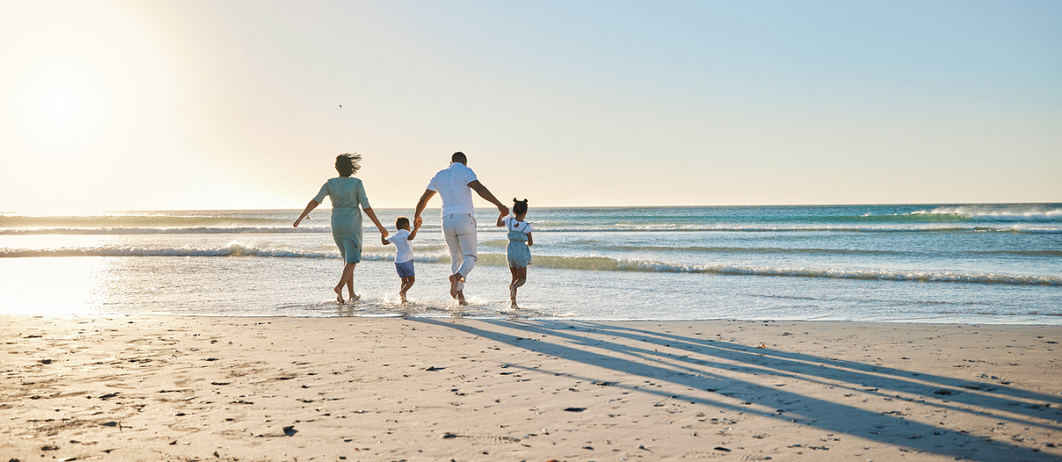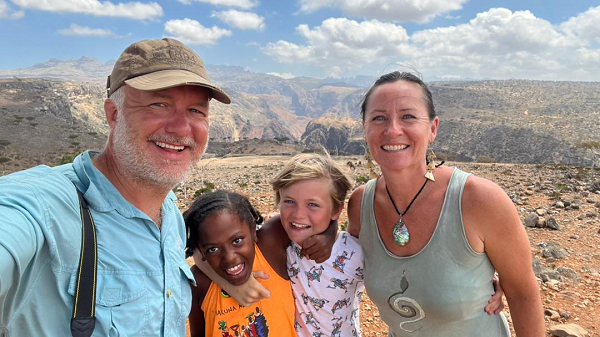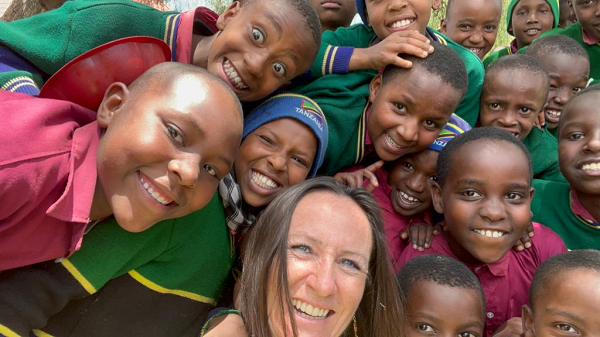
Andrew Hallam
07.08.23
How This Couple Retired Early and How You Could Too
_
Luke and Rachel Ellyard were camping in the mountains in the UAE. They were reflecting on their lives and Rachel asked her husband, “If you died tomorrow, would you be happy with what you have done with your life? I wouldn’t be. I haven’t done what I want with it, yet. I think we need to think differently and make some changes, maybe significant ones.” Then she asked Luke, “What would you want your gravestone to say about you?”
Her question reminds me of Steven Covey’s book, The 7 Habits of Highly Effective People. Covey says we should imagine being a ghost at our own funeral. What would we want people to say about us? Would you want people to say you owned a Ferrari, built a multi-million dollar empire and owned lovely purses? You might. But when given time to reflect, I suspect most people’s values might align with Rachel’s.
Covey says we should think with the end in mind. That helps us define the lives we want and become the people we want to be.
When Luke speaks of his wife, it’s with a form of reverence. It’s as if she immersed herself in a deep pool of wisdom and then lovingly coaxed him in.
Rachel wanted to retire early. She wanted to spend more time with the couple’s children, more time with their aging parents and help disadvantaged people. She grew increasingly passionate about the value of time. When two of her friends tragically died in their early 40s, it brought her own mortality sharply into focus. “If my life’s activities up to that point were reflected on my gravestone,” says Rachel, “I wouldn’t be satisfied.”

Photo: Luke, Rachel and their two children
Get International Investing insights
in your inbox once per month
Luke and Rachel had moved to the UAE in 2008, when they were thirty years old. They aimed to pay off their UK-based mortgage early, and invest in a diversified portfolio. But like so many other expats, they fell for a silver-tongued salesman. He sold them a 25-year investment-linked assurance scheme. “Years later, after we saw how much we were paying in fees, we pulled out,” says Luke. “We paid a stiff penalty to do that. But we realized we would make more money taking the financial hit and then investing the proceeds in a portfolio of low-cost ETFs.”
But Luke and Rachel didn’t know how they were doing until they devised a plan.
They had to set measurable, time-oriented goals. And therein lies the rub. No athlete, regardless of natural talent, can just run 100 miles a week and make the Olympic team. Likewise, early retirement requires more than just a high income and knowledge of where to put your money. In fact, well-planned people with average salaries can retire far earlier than most high-salaried people who don’t have a plan.
Luke was an Audit Partner in a large professional services firm. Rachel worked as a Middle East and North Africa region, HR Director. And in their eyes, they mirrored the mistakes of so many other people. “We didn’t fritter money away, but realized we were spending too much money on things we didn’t truly value,” recalls Luke. “It was often needless consumption.”
They tracked their spending on a spreadsheet and began to cut back. To many, this would look like a sacrifice. But Luke and Rachel didn’t see it that way. Luke recalls, “One of the best things we did was separately write the Top 10 things that made us happiest in any given week. We found that none of them needed anything more than time.”
The couple’s two young children provided extra motivation. “We heard a podcast suggesting that 90 percent of the time you spend with your kids on average is before they turn 18 and 75 percent before they turn 12,” Luke says. “Suddenly we realized our time with them was rapidly running out. We also realized that our parents were getting older quickly and we wanted our family to spend more time together.”
Luke and Rachel have been retired for about a year. They moved to Tanzania where they founded a charity, the Bouncing Books Foundation. “We found a great school for our children,” explains Luke, “and the lower cost of living and slower pace has allowed us to enjoy different travel opportunities as a family.”

Photo: Rachel and her students at The Bouncing Books Foundation
Instead of working full-time for a salary, they now work part-time, for free. They live off the rental income from their mortgage-free home in the UK, and they don’t have to sell their investments.
The popular term for this is “Coast FIRE.”
FIRE stands for, Financial Independence, Retire Early. The coast part is best described when imagining a bicycle with a tailwind and a giant sale. They no longer need to pedal. In other words, over the next twenty years, their portfolio will keep growing without them needing to add money.
It won’t grow every year. Some years it will decline. But over the next 20 years, their diversified portfolio of index funds should triple or quadruple…without them adding a penny.
This should allow them, one day, to retire in the UK (where it’s much more expensive than Tanzania).
It’s an enviable position. But as Luke says, “It’s an option many could consider with careful planning and tough choices”.
Andrew Hallam is a Digital Nomad. He’s the bestselling author Balance: How to Invest and Spend for Happiness, Health and Wealth. He also wrote Millionaire Teacher and Millionaire Expat: How To Build Wealth Living Overseas
Swissquote Bank Europe S.A. accepts no responsibility for the content of this report and makes no warranty as to its accuracy of completeness. This report is not intended to be financial advice, or a recommendation for any investment or investment strategy. The information is prepared for general information only, and as such, the specific needs, investment objectives or financial situation of any particular user have not been taken into consideration. Opinions expressed are those of the author, not Swissquote Bank Europe and Swissquote Bank Europe accepts no liability for any loss caused by the use of this information. This report contains information produced by a third party that has been remunerated by Swissquote Bank Europe.
Please note the value of investments can go down as well as up, and you may not get back all the money that you invest. Past performance is no guarantee of future results.
